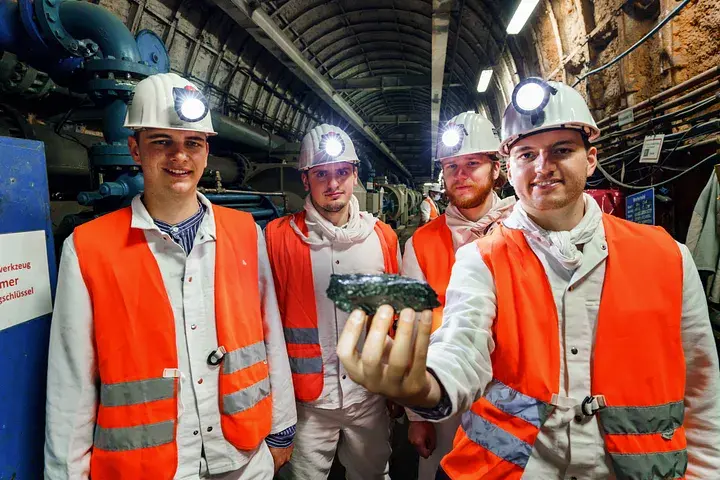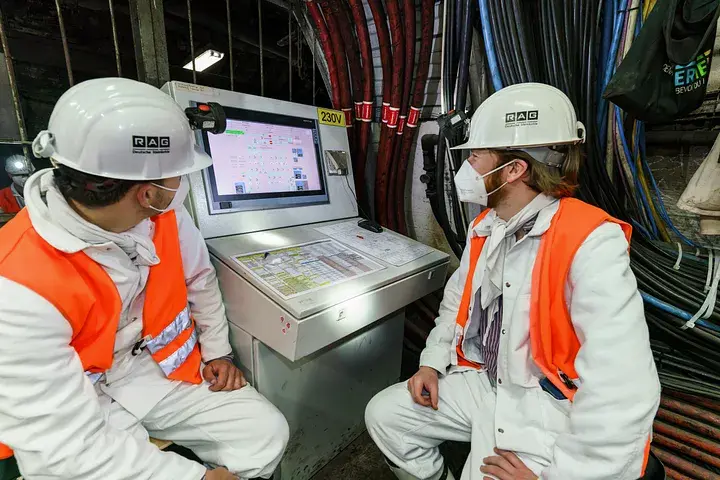Search engines like Google and others show the way: Enter keywords or a short question and the result you are looking for is there. The “KISS42” project promises the answer to all operational questions for RAG. In cooperation with an interdisciplinary RAG team, the start-up amberSearch from Aachen developed the intelligent search engine amberSearch — designed for the specific data and requirements of the company. It not only helps to make research in RAG’s documents efficient for employees, but above all to make the archived knowledge from 150 years of coal mining usable for current operational tasks.
“For us, the project was a successful start to the use of AI methods in the field of geoinformation and search technology. The know-how and innovative spirit of amberSearch opened up completely new possibilities for the intelligent use of our databases,” emphasises Peter Vosen, head of the geodata department at RAG and head of the KISS42 project.

“It’s always exciting when start-ups work together with corporations; sometimes two cultures collide,” says Julian Reinauer from amberSearch. “The cooperation with RAG has shown that both sides can learn from each other. On the one hand, the corporations benefit from the speed and agility of the startups, on the other hand, startups gain insights into the processes and structures of large corporations.”
It may come as a surprise, but even an artificial intelligence has to learn before it can fully display its competence. During a trial phase, the search engine amberSearch first learned what types of data it should be able to read: Geodata, Office documents from Excel to PowerPoint, PDFs, but also maps, graphics, images and much more should be available to users to match the query. Another challenge: the sources. Because the company data are often in different places: in SharePoint team rooms or in databases — they come from SAP, Elo or the company-wide intranet.
Also on the syllabus: the mining language with all its technical terms and the special features of the coal industry — for the coal industry, robbery is not a criminal offence, Walsum is not just a district of Duisburg and West and East refer to much more than just the direction of the sky. “Training our algorithms to use these special terms was a huge challenge at first, but in the end, users learn to love our search,” says Philipp Reißel from amberSearch.
Teething problems of the software had to be cured, the user-friendliness of the search had to be ensured: As simple as possible, as complex as necessary, was the motto. And last but not least, the artificial intelligence must also understand and implement the different authorisations of the RAG users so that data protection is maintained with all transparency.
The new search is based on an existing database software, the “Digital Service File”. It is available to all RAG employees as a research tool, but so far it only maps a section of the company’s data and is more of a Google for specialists. Furthermore, in future more data sources will be integrated. KISS42 also expands the in-house data with information from the internet, searches and adds to it and creates intelligent links from internal and public documents. The search results are available within a few fractions of a second and this with millions of documents and around 40 terrabytes of data volume.
After the company-wide implementation, the artificial intelligence continues to learn — with every user feedback, every query, based on selected search results and recurring search terms. KISS42 is constantly optimising itself, so to speak, and in the end provides the right answers to all questions.
